Technician
600+ Technician Interview Questions and Answers

Asked in Morgan Stanley

Q. For a text file, write a C program to check if all open brackets (, { and [ are closed appropriately.
C program to validate if all brackets in a text file are properly closed and nested.
Use a stack data structure to keep track of opening brackets.
Push '(', '{', and '[' onto the stack when encountered.
Pop from the stack when a closing bracket ')', '}', or ']' is found.
Check if the popped bracket matches the corresponding opening bracket.
If the stack is empty at the end, all brackets are properly closed.
Asked in Sai Aviotechnics

Q. What are the key points to check during a scheduled preventive service?
Key points to check during a scheduled preventive service
Check fluid levels (oil, coolant, brake fluid)
Inspect belts and hoses for wear and tear
Inspect brakes for wear and proper function
Check tire pressure and tread depth
Inspect filters (air, oil, fuel) and replace if necessary
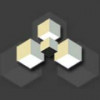
Asked in Dwarikesh Sugar Industries

Q. Why are electrical products grounded, and what are the benefits of doing so?
Electrical products are earthed to ensure safety, prevent electric shocks, and protect equipment from damage.
Earthing provides a safe path for fault currents, reducing the risk of electric shock.
It protects electrical appliances from voltage surges, such as lightning strikes.
In case of insulation failure, earthing directs the current away from users.
Example: In homes, metal casings of appliances like refrigerators are earthed.
Earthing is crucial in industrial settings to ensu...read more

Asked in Almajal Alarabi Holding

Q. Why is preventive maintenance important before functioning?
Preventive maintenance is important to ensure optimal functioning and prevent breakdowns.
Preventive maintenance helps identify and fix potential issues before they become major problems.
Regular maintenance can extend the lifespan of equipment and reduce the need for costly repairs.
Preventive maintenance can also improve safety and reduce the risk of accidents.
Examples include changing oil in a car, cleaning air filters in HVAC systems, and inspecting machinery for wear and te...read more

Asked in Jubilant Foods Works

Q. What is the optimal time and temperature for baking a pizza?
Pizza baking typically occurs at a high temperature for a short amount of time.
Pizza is usually baked at temperatures ranging from 450-500°F (232-260°C)
Baking time can vary depending on the type of pizza and oven, but typically ranges from 10-15 minutes
A preheated pizza stone or baking sheet can help achieve a crispy crust
Wood-fired ovens can reach temperatures of 800°F (427°C) or higher for a quick bake

Asked in Mercedes-Benz T&T Motors

Q. How do you know what grade of oil to use in an engine! Why is oil used in engines?
The grade of oil to use in an engine is determined by the manufacturer's recommendations based on factors such as engine design, operating conditions, and climate.
Check the owner's manual for the manufacturer's recommended oil grade
Consider factors such as engine design, operating conditions, and climate when selecting oil grade
Consult with a mechanic or oil specialist for guidance if unsure
Technician Jobs



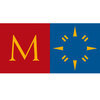
Asked in Mazars

Q. what do you know about different life insurance policies.
Different life insurance policies include term life, whole life, universal life, and variable life.
Term life insurance provides coverage for a specific period of time.
Whole life insurance offers coverage for the entire lifetime of the insured.
Universal life insurance provides flexibility in premium payments and death benefits.
Variable life insurance allows the policyholder to invest in separate accounts for potential growth.

Asked in Mercedes-Benz T&T Motors

Q. How does the cooling system work in an engine?
The cooling system in an engine circulates coolant through the engine to absorb heat and dissipate it through the radiator.
Coolant is pumped through the engine block and cylinder head to absorb heat generated by combustion.
The heated coolant then flows to the radiator where it releases heat to the surrounding air.
The radiator fan helps to cool the coolant by blowing air through the radiator fins.
The cooled coolant is then circulated back to the engine to repeat the process.
Th...read more
Share interview questions and help millions of jobseekers 🌟


Asked in Sovereign Pharma

Q. What is transformer and how many types of transformer
A transformer is an electrical device that transfers electrical energy from one circuit to another through electromagnetic induction.
Transformers are used to increase or decrease the voltage of an alternating current (AC) power supply.
There are two main types of transformers: step-up transformers and step-down transformers.
Step-up transformers increase the voltage of the input power supply, while step-down transformers decrease the voltage.
Other types of transformers include ...read more

Asked in S G Encon

Q. What are some reasons a diesel generator might not start, such as low fuel, communication fault, loop fault, high temperature, alternator problem, etc.?
Several factors can prevent a diesel generator from starting, including fuel issues, electrical faults, and temperature problems.
Low fuel level: Ensure the fuel tank is adequately filled to avoid starting issues.
Common faults: Check for blown fuses or tripped circuit breakers that may disrupt power.
Loop fault: Inspect wiring and connections for any shorts or disconnections.
High temperature: Verify that the engine is not overheating, which can trigger safety shutdowns.
Alternat...read more

Asked in Cummins Generator Technologies

Q. What is the difference between BS4 and BS6?
BS4 and BS6 are emission norms for vehicles, with BS6 being more stringent and environmentally friendly.
BS4 stands for Bharat Stage 4 and BS6 stands for Bharat Stage 6.
BS4 emission norms were implemented in India in 2017, while BS6 norms were implemented in 2020.
BS6 vehicles emit lower levels of harmful pollutants like nitrogen oxides and particulate matter compared to BS4 vehicles.
BS6 compliant vehicles require the use of cleaner fuel with lower sulfur content.
BS6 norms aim ...read more
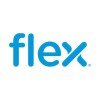
Asked in Flex

Q. How many parameters can be measured using a multimeter?
A multimeter typically measures several parameters including voltage, current, and resistance.
Voltage
Current
Resistance
Continuity
Diode testing

Asked in Tata Electronics

Q. What is the function of a transformer rectifier?
A transformer rectifier converts AC voltage to DC voltage, providing stable power for various electronic applications.
Transforms high voltage AC to lower voltage AC.
Rectifies AC to DC using diodes, allowing current to flow in one direction.
Used in power supplies for electronic devices like computers and chargers.
Example: A transformer rectifier in a laptop charger converts mains AC to the required DC voltage.
Asked in Funcity

Q. How many different voltages can exist in an I/O board?
There can be multiple different voltages on an I/O board depending on the components connected.
I/O boards can have various voltages such as 5V, 12V, -12V, etc.
Different components on the board may require different voltages to operate properly.
It is important to ensure that the correct voltage is supplied to each component to prevent damage.

Asked in Salcomp Manufacturing

Q. Do you have experience with OMM and VMM machines?
OMM and VMM machines are essential in virtualization, enabling efficient resource management and system performance.
OMM (Oracle Managed Machine): Used for managing Oracle databases and applications, providing high availability and scalability.
VMM (Virtual Machine Monitor): Facilitates the creation and management of virtual machines, allowing multiple OS to run on a single hardware platform.
Resource Allocation: Both OMM and VMM optimize resource allocation, ensuring efficient ...read more

Asked in JSW Steel

Q. How do you measure bearing clearance in diameter?
The clearance of a bearing in diameter can be measured using a micrometer or a dial gauge.
Use a micrometer or a dial gauge to measure the diameter of the bearing.
Measure the diameter at multiple points around the bearing to ensure accuracy.
Subtract the measured diameter from the specified or nominal diameter to calculate the clearance.
Clearance can be positive (when the measured diameter is smaller than the specified diameter) or negative (when the measured diameter is larger...read more

Asked in Bosch

Q. What is the difference between a CRDI engine and a TDI engine?
CRDI engine uses common rail technology while TDI engine uses turbocharging technology.
CRDI stands for Common Rail Direct Injection while TDI stands for Turbocharged Direct Injection.
CRDI engine uses a common rail to supply fuel to the injectors while TDI engine uses a turbocharger to increase the air intake.
CRDI engine provides better fuel efficiency and lower emissions while TDI engine provides better power and torque.
Examples of CRDI engines include Hyundai's CRDI engines ...read more

Asked in Stallion Group

Q. What is your experience with servicing printers and scanners?
I have 5 years of experience servicing printers and scanners in a corporate setting.
Performed regular maintenance on various printer models such as HP, Canon, and Epson.
Troubleshooted and resolved hardware and software issues efficiently.
Calibrated scanners for optimal performance.
Managed inventory of printer supplies and replacement parts.
Trained new technicians on printer and scanner servicing procedures.
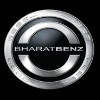
Asked in Bharat Benz

Q. How to work turbo charger & What do u mean by BS 6
A turbocharger is a device that increases the power output of an engine by compressing air. BS 6 is a set of emission standards for vehicles.
A turbocharger uses exhaust gases to spin a turbine, which compresses air and sends it to the engine
This compressed air allows the engine to burn more fuel and produce more power
BS 6 is a set of emission standards that require vehicles to emit fewer pollutants than previous standards
It requires the use of advanced technologies like selec...read more

Asked in Expert Global Solutions

Q. What is the formula for speed?
The formula for speed is distance divided by time.
Speed = Distance / Time
Units of speed can be meters per second, miles per hour, or kilometers per hour.
Speed can be calculated for any type of motion, including walking, running, or driving.
Speed can also be used to calculate the velocity of an object, which takes into account its direction of motion.

Asked in EazyPC

Q. Are you okay with flexible logout times when there's urgent work?
I am open to flexible logout times when urgent work arises, as it ensures team success and project completion.
Flexibility allows me to prioritize urgent tasks, ensuring deadlines are met.
For example, if a critical system issue arises, I would stay to resolve it.
I believe in teamwork; supporting colleagues during urgent situations fosters collaboration.
Being adaptable helps maintain productivity and client satisfaction.
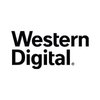
Asked in Western Digital

Q. What is your knowledge of the processes you handle?
I have extensive knowledge in the process I handle.
I have been handling this process for several years now.
I have undergone training and certification in this process.
I keep myself updated with the latest developments and best practices in this process.
I have successfully implemented improvements in this process that resulted in cost savings and increased efficiency.
I have also trained and mentored new employees in this process.

Asked in United Breweries

Q. How do you handle peak production times?
Peak production time can be handled by proper planning and organization.
Create a production schedule to ensure all tasks are completed on time
Prioritize tasks based on their importance and urgency
Ensure all equipment and machinery are in good working condition
Train and cross-train employees to handle multiple tasks
Consider hiring temporary staff to handle the increased workload
Monitor progress regularly and make adjustments as needed

Asked in VE Commercial Vehicles

Q. What is the working principle of an engine?
The engine works by converting fuel into energy through combustion, which powers the pistons and turns the crankshaft.
Fuel is mixed with air and ignited in the combustion chamber
The resulting explosion pushes the piston down, which turns the crankshaft
The crankshaft converts the linear motion of the piston into rotational motion
The rotational motion is transferred to the wheels through the transmission
Examples of engines include gasoline, diesel, and electric

Asked in Tech Mahindra

Q. What is the significance of interest in technical fields?
Interest in technical fields is significant as it drives innovation, problem-solving, and advancements in various industries.
Interest in technical fields leads to innovation and the development of new technologies.
It encourages problem-solving skills and critical thinking.
Technical fields play a crucial role in driving advancements in various industries such as healthcare, engineering, and information technology.

Asked in Jio

Q. Do you know current? Do you know transfarmer?
Yes, I am familiar with current and transformers.
I have a strong understanding of electrical current and its properties.
I am knowledgeable about transformers and their role in electrical systems.
I have experience working with current and transformers in practical applications.
I can troubleshoot and repair issues related to current and transformers.
I am familiar with the safety precautions associated with working with current and transformers.

Asked in Mercedes-Benz T&T Motors

Q. What is the operating capacity of the engine?
The operating capacity of the engine is determined by factors such as horsepower, torque, and fuel efficiency.
The operating capacity of an engine is typically measured in horsepower (HP) or kilowatts (kW).
Torque is also an important factor in determining the engine's ability to perform under load.
Fuel efficiency can impact the overall operating capacity of the engine, as a more efficient engine may be able to produce more power with less fuel consumption.
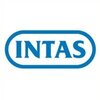
Asked in Intas Pharmaceuticals

Q. Storage vasal in cip definition
A storage vasal in CIP is a vessel used for storing materials in a Clean-in-Place system.
A storage vasal in CIP is a container or tank used to hold cleaning solutions, chemicals, or other materials in a Clean-in-Place system.
It is designed to maintain the cleanliness and integrity of the stored materials.
The storage vasal may have specific features such as temperature control, agitation, or filtration to ensure the quality of the stored materials.
Examples of materials that ca...read more
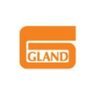
Asked in Gland Pharma

Q. How do you calibrate RTDs?
Calibration of RTDs involves comparing the sensor's output to a known reference and adjusting it accordingly.
RTDs (Resistance Temperature Detectors) are calibrated to ensure accurate temperature measurements.
Calibration involves comparing the RTD's resistance values at different temperatures to a known reference.
Adjustments are made to the RTD's output signal to align it with the reference values.
Calibration can be done using a calibration bath, dry block calibrator, or a tem...read more
Asked in Kuramathi Maldives

Q. How would you handle emergency situations, such as a fire?
In case of fire, stay calm and evacuate the building immediately using the nearest exit.
Activate the fire alarm and call the fire department.
If possible, use a fire extinguisher to put out the fire.
Do not use elevators, use stairs instead.
Stay low to the ground if there is smoke.
Check doors for heat before opening them.
Assist others in evacuating the building.
Once outside, move away from the building and do not re-enter until given the all-clear by authorities.
Interview Questions of Similar Designations
Interview Experiences of Popular Companies





Top Interview Questions for Technician Related Skills

Calculate your in-hand salary
Confused about how your in-hand salary is calculated? Enter your annual salary (CTC) and get your in-hand salary


Reviews
Interviews
Salaries
Users










